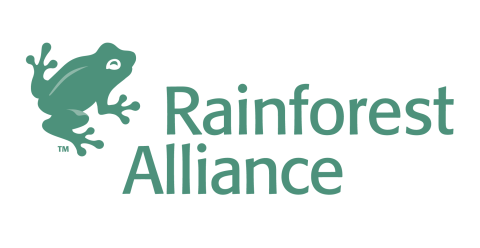Founded in New York City in 1987, the Rainforest Alliance is an international NGO that leverages the power of agricultural and forestry supply chains in order to conserve nature and improve people’s lives.
The Rainforest Alliance works on a variety of issues, from forests to human rights, in 78 nations across the globe. The Rainforest Alliance launched the world’s first global forestry certification program in 1989 and is one of the founders of the Forest Stewardship Council (FSC). The Rainforest Alliance also certifies sustainable farming through the Rainforest Alliance Sustainable Agriculture Standard.
Currently, in Latin America there are more than 5 million hectares of Rainforest Alliance Certified land.
Across Latin America, the Rainforest Alliance helps community, company, government and other partners chart a course for – and achieve on the ground – low-emission, resilient and sustainable rural economic growth. This course has many natural synergies with restoring degraded lands and many common challenges that must be overcome to deliver on restoration commitments.
Due to its global projects and partnerships with government agencies, NGOs, and investors, the Rainforest Alliance has local capacity, knowledge, and relationships that can support landscape restoration in any number of areas. The Rainforest Alliance also has experience in the design and implementation of National Forest Restoration Strategies, landscape-based NAMAs, and national REDD+ strategies.
The Rainforest Alliance hopes contribute to Initiative 20x20's broader efforts through:
- Harnessing company commitments for sustainable products to restore degraded lands, halt deforestation, and advance climate-smart agriculture. The Rainforest Alliance Sustainable Agriculture Standard supports farmers to address these issues as they continually progress on their journey towards sustainable farming. Across Latin America and the Caribbean, over 1.1 million ha of lands growing 71 crops have been certified.
- Aligning restoration, climate change and rural economic development objectives. In Guatemala, with support from USAID, under the Climate, Nature and Communities in Guatemala Program, The Rainforest Alliance and partners supported the National Forest Landscape Restoration Strategy, development of the National REDD+ Program, and established landscape-scale REDD+ projects, including Guatecarbon, that promote landscape restoration and are beginning to transact carbon credits. Building on this, they are supporting the Ministry of Economy in setting up a national initiative for low-emission, resilient rural development.
- Undertaking incentives analyses, direct fieldwork and supply chain engagement to unlock finance for productive restoration at scale. The Rainforest Alliance provides technical assistance to producers, communities and companies to sustainably improve production while conserving and restoring their lands.
- Creating mechanisms for accountability and transparency. In alliance with other NGOs, including WRI, The Rainforest Alliance is exploring what can be done to create greater clarity around restoration concepts. This is part of an effort to foster accountability for deforestation-related commitments made around the globe (e.g. New York Declaration on Forests, Bonn Challenge, etc.).

